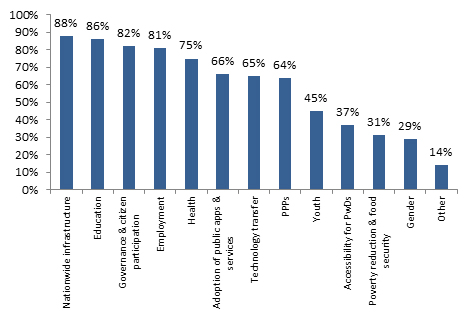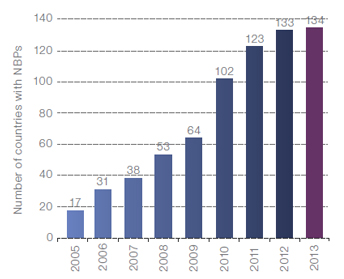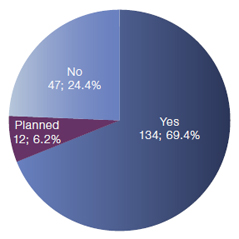ITU發(fā)布全球?qū)拵а芯繄蟾?英文版摘要)
2013-07-19
New global broadband study: national plans and competitive markets are crucial
New report shows first clear correlation between National Broadband Plans and citizens’ access to affordable services
Geneva, 1 July 2013 – Countries with a clearly-defined national vision for broadband roll-out are significantly out-performing those taking a more laissez-faire approach to broadband development, according to a new joint report just released by ITU, the Broadband Commission for Digital Development and network equipment maker Cisco Systems
According to new research undertaken by ITU analysts for Planning for Progress: Why National Broadband Plans Matter, raw data indicates that countries with a National Broadband Plan have fixed broadband penetration some 8.7% higher on average than countries without plans. Once the potential impact of factors like higher average income per capita, market concentration and urbanization are discounted, research suggests that countries with plans benefit from fixed broadband penetration on average 2.5% higher than countries without plans – a significant margin of advantage in an increasingly interconnected global economy.
In mobile, the impact may be even greater – countries which have National Broadband Plans also have mobile broadband penetration some 7.4% higher on average than countries without plans.
The report concludes that market competition also plays a strong role in boosting broadband penetration. Competitive markets are associated with broadband penetration levels some 1.4% higher on average for fixed broadband and up to 26.5% higher on average for mobile broadband.
“The Broadband Commission’s message about the power of broadband to transform each and every economic sector is now gaining global traction,” said ITU Secretary-General, Dr Hamadoun I. Toure. “Governments are realizing that broadband networks are not just vital to national competitiveness, but to the delivery of education, healthcare, public utilities like energy and water, environmental management, and a whole host of government services. Broadband is the key enabler not just of human interaction, but of the machine-to-machine communications systems that will underpin tomorrow’s world.”
“Broadband plans clearly matter,” said Dr Robert Pepper, Vice President of Global Technology Policy for Cisco Systems. “Plans spur adoption, accelerating economic growth and increasing national competitiveness. The role of policy is to set a vision for broadband development and ensure a level playing field which then allows for the best ideas to prosper.”
The report also documents strong recent growth in National Broadband Plans, with 134 plans in force by mid-2013. Plans may take different forms (legislation, policy frameworks, government strategy and/or regulations), but all share a common emphasis on the vital role of broadband in underpinning national competitiveness, and aim to extend the national footprint of broadband networks and drive increased use of broadband-enabled services and applications.
The full economic and social benefits are most likely to be realized where there is strong partnership between government and industry, and where governments engage in a consultative, participatory approach to policy in conjunction with key stakeholders, the report says.
Downloadable statistical charts:
1.A growing role for policy leadership – countries with national broadband plans (worldwide)
Source: ITU and the Broadband Commission for Digital Development.
2.Status of countries and plans, mid-2013
Source: ITU and the Broadband Commission for Digital Development.
3.What do plans focus on? Issues addressed by broadband policies (worldwide)

Source: ITU and the Broadband Commission for Digital Development.
For more information on the Broadband Commission, visit:

 通知公告
通知公告 
 報告下載
報告下載
 寬帶地圖
寬帶地圖
 下載專區(qū)
下載專區(qū)

